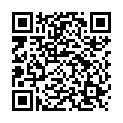|
|
|
| Module code: MAS-20-IV |
|
6S (6 hours per week) |
|
8 |
| Semester: 2 |
| Mandatory course: yes |
Language of instruction:
German |
Assessment:
Class presentation/oral examination
[updated 21.12.2023]
|
Exam recurrence:
The information regarding exam recurrence is found within the exam policy of the study programme (ASPO).
|
MAS-20-IV Social Work, Master, ASPO 01.10.2020
, semester 2, mandatory course
MAS-20-IV Social Work, Master, SO 01.10.2023
, semester 2, mandatory course
|
90 class hours (= 67.5 clock hours) over a 15-week period.
The total student study time is 200 hours (equivalent to 8 ECTS credits).
There are therefore 132.5 hours available for class preparation and follow-up work and exam preparation.
|
Recommended prerequisites (modules):
MAS-20-I1 Transitions in the Course of Life: Lives, Biographies, and Coping with Life in the Face of Social Change
MAS-20-I2 Life Situations, Social Inequalities and Social Cohesion: Social and Educational Regulation
MAS-20-I3 Migration, Diversity and Interculturality: Socio-Educational and Structural Concepts in Migration Society
MAS-20-II1 Empirical Social Research: Principles and Perspectives with Tutorial
MAS-20-II2 Advanced Qualitative Research, Evaluation Methods with Research Workshop
MAS-20-II3 Advanced Quantitative Research, Evaluation Methods with Research Workshop
[updated 30.10.2023]
|
Recommended as prerequisite for:
MAS-20-V1 Master’s Thesis
MAS-20-V2 Theory and Research Workshop
MAS-20-V3 Colloquium
[updated 30.10.2023]
|
Module coordinator:
Prof. Dr. Christian Schröder |
Lecturer: Prof. Dr. Christian Schröder
[updated 05.08.2020]
|
Learning outcomes:
After successfully completing this course, students will be able to:
- organize education, learning, consulting and development processes in, by and between organizations in a future-oriented, unbiased and participatory way,
- promote the improvement of organizational conditions and opportunities for human life and learning through their actions,
- act (self-)reflexively and promote individual and collective reflexivity of, within and between organizations
- handle (difficult) discussion with addressees and colleagues constructively,
- relate their actions to social, organizational-structural and cultural conditions.
[updated 14.06.2021]
|
Module content:
In the compulsory elective module, students deepen their research and operational competencies with a focus on counseling/education and organization, such as leadership, organizational development and evaluation, conceptual development, organizational research, or quality in counseling. An ethical context is incorporated in the conpulsory elective module. Courses offered as electives are designed to allow students to specialize themselves in a specific area of their choice.
[updated 14.06.2021]
|
Teaching methods/Media:
- Information from the lecturer(s) and or guest lectures
- Exercises within the framework of the seminar
- Practical implementation, e.g. through service learning projects
- Independent study (Recommended reading)
- Follow-up work and in-depth study
[updated 21.12.2023]
|
Recommended or required reading:
Literature will be updated regularly and therefore communicated in the seminar and seminar schedule.
[updated 14.06.2021]
|


